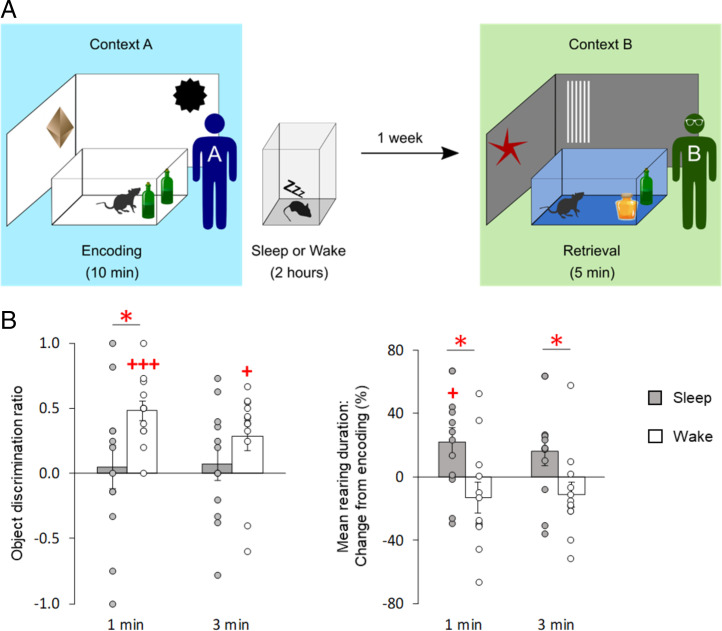Fig. 3.
Remote NOR memory after postencoding sleep, but not after postencoding wakefulness, is context dependent. (A) Experimental procedures. During encoding, rats explored two identical objects in an arena of context A for 10 min, followed by a 2-h interval in which the rats either slept or remained awake. Retrieval of NOR memory was tested a week later in a different (but familiar) context B. Contexts A and B differed with respect to distal and proximal cues, and olfactory and auditory stimulation, and also with regard to the experimenters who performed the experiments (see Materials and Methods). (B) (Left) Mean (±SEM) object discrimination ratios at first and third minutes of the retrieval phase for animals of the sleep (gray bars) and wake (empty bars) groups, and (Right) percentage change in mean rearing duration (mean ± SEM) at first and third minutes of retrieval phase, compared to mean rearing duration during encoding (set to 100%). Note that rats that slept after encoding (gray bars) showed a decrease in NOR memory performance, but an increase in rearing duration, relative to the wake rats that remained awake during the 2-h postencoding interval (empty bars); n = 12 rats each for sleep and wake groups. +++P < 0.001, +P < 0.05 for one-sample t tests against chance level; *P < 0.05 for pairwise t tests (two-sided) between groups.

